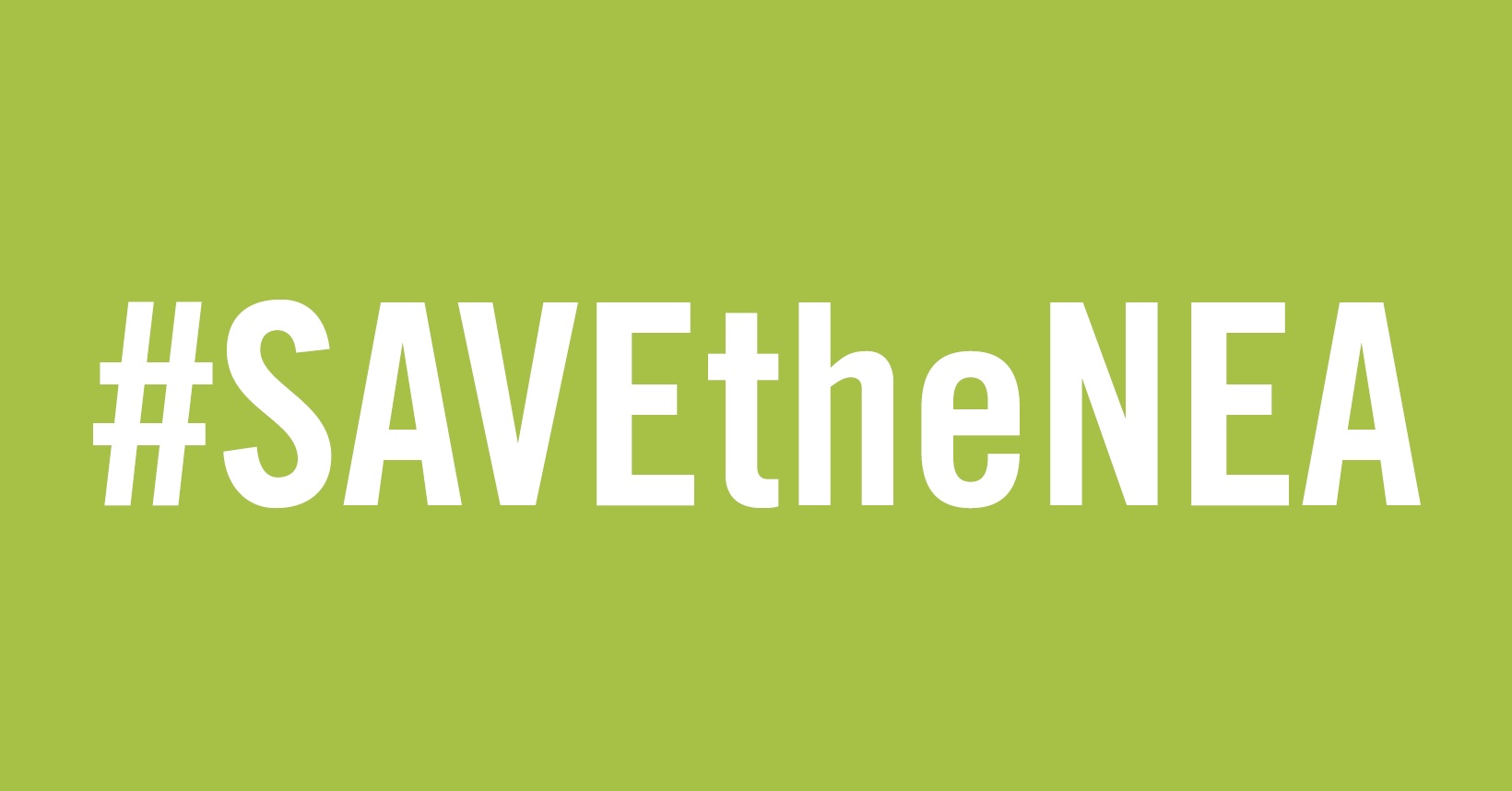CAA News Today
CAA at 2018 Arts and Humanities Advocacy Days in Washington, DC
posted by CAA — March 16, 2018
CAA staff in Washington, DC (left to right): Joelle Te Paske, media and content manager, Alison Chang, sponsorship and partnership manager, Aakash Suchak, grants and special programs manager, Hunter O’Hanian, executive director, and Nick Obourn, director of communications, marketing, and membership.
Earlier this week CAA staff traveled to Washington, DC for Americans for the Arts’s Arts Advocacy Day and National Alliance for the Humanities’s Humanities Advocacy Day.
After a day of breakout sessions and briefings on Monday, staff visited congressional offices on Tuesday to advocate for continued funding for NEA, NEH, IMLS, CPB, and support for the arts, humanities, and higher education. See our on-the-ground updates.
We visited 18 congressional offices representing three different states, with positive responses from both Democrats and Republicans. We meet with staff or dropped off materials with:
New York
Sen. Chuck Schumer (D-NY)
Rep. Grace Meng (D-NY 6th District)
Dropped off materials with Rep. Nydia Velázquez (D-NY 7th District)
Dropped off materials with Rep. Hakeem Jeffries (D-NY 8th District)
Rep. Yvette Clarke (D-NY 9th District)
Rep. Jerrold Nadler (D-NY 10th District)
Dropped off materials with Rep. Eliot Engel (D-NY 16th District)
Rep. Nita Lowey (D-NY 17th District)
Rep. Sean Maloney (D-NY 18th District)
Wisconsin
Sen. Ron Johnson (R-WI)
Rep. Mark Pocan (D-WI 2nd District)
Rep. Sean Duffy (R-WI 7th District)
Rep. Mike Gallagher (R-WI 8th District)
Connecticut
Sen. Richard Blumenthal (D-CT)
Rep. John Larson (D-CT 1st District)
Rep. Joe Courtney (D-CT 2nd District)
Rep. Jim Himes (D-CT 4th District)
Rep. Elizabeth Esty (D-CT 5th District)
Learn more about Advocacy Days below.
ARTS ADVOCACY DAY
March 12 – March 13, 2018
Hosted by Americans for the Arts
Arts advocates from across the country convene in Washington, DC for Americans for the Arts’s annual Arts Advocacy Day each year. Arts Advocacy Day brings together a broad cross section of America’s cultural and civic organizations, along with more than 700 grassroots advocates from across the country, to underscore the importance of developing strong public policies and appropriating increased public funding for the arts. Learn more.
HUMANITIES ADVOCACY DAY
March 11 – March 13, 2018
Hosted by National Alliance for the Humanities
Humanities Advocacy Day provides the opportunity to connect with a growing number of humanities advocates from around the country. Together, advocates will explore approaches to year-round advocacy on college campuses and in local communities while also preparing for Capitol Hill visits. On March 13, they will visit House and Senate offices to make a persuasive case for federal funding for the humanities. Learn more.
WHY DID CAA ATTEND?
For two years in a row, we’ve offered our complete and total opposition to efforts to eliminate funding for the National Endowment for the Arts (NEA), the National Endowment for the Humanities (NEH), and other domestic programs that fund education, arts, and humanities initiatives, as outlined in the 2018 and 2019 White House budget proposals.
Over the last year, we’ve also solicited feedback from our members on a variety of issues that impact the arts, humanities, and higher education, including:
- Gun control and the proposal to arm teachers
- Tax reform and its effect on higher education
- Embracing and supporting diverse voices in the arts
- Hiring standards for part-time faculty
- Removing or preserving Confederate monuments
- The Muslim Travel Ban
For more on our advocacy efforts, click here.
We encourage you to be vocal about your support for the arts and humanities. Click here to access the CAA Arts and Humanities Advocacy Toolkit.
CAA Goes to Washington
posted by CAA — March 07, 2018
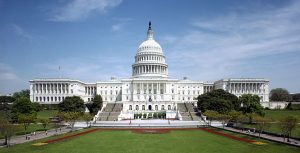
See live updates on Twitter and Instagram
Early next week, staff members from CAA will be attending Arts Advocacy Day and Humanities Advocacy Day in Washington, DC.
ARTS ADVOCACY DAY
March 12 – March 13, 2018
Hosted by Americans for the Arts
Arts advocates from across the country convene in Washington, DC for Americans for the Arts’s annual Arts Advocacy Day each year. Arts Advocacy Day brings together a broad cross section of America’s cultural and civic organizations, along with more than 700 grassroots advocates from across the country, to underscore the importance of developing strong public policies and appropriating increased public funding for the arts. Learn more.
HUMANITIES ADVOCACY DAY
March 11 – March 13, 2018
Hosted by National Alliance for the Humanities
Humanities Advocacy Day provides the opportunity to connect with a growing number of humanities advocates from around the country. Together, advocates will explore approaches to year-round advocacy on college campuses and in local communities while also preparing for Capitol Hill visits. On March 13, they will visit House and Senate offices to make a persuasive case for federal funding for the humanities. Learn more.
WHY IS CAA ATTENDING?
For two years in a row, we’ve offered our complete and total opposition to efforts to eliminate funding for the National Endowment for the Arts (NEA), the National Endowment for the Humanities (NEH), and other domestic programs that fund education, arts, and humanities initiatives, as outlined in the 2018 and 2019 White House budget proposals.
Over the last year, we’ve also solicited feedback from our members on a variety of issues that impact the arts, humanities, and higher education, including:
- Gun control and the proposal to arm teachers
- Tax reform and its effect on higher education
- Embracing and supporting diverse voices in the arts
- Hiring standards for part-time faculty
- Removing or preserving Confederate monuments
- The Muslim Travel Ban
For more on our advocacy efforts, click here.
We encourage you to be vocal about your support for the arts and humanities next week (and beyond!). Click here to access the CAA Arts and Humanities Advocacy Toolkit.
Feedback on Proposal to Arm Teachers in Gun Control Debate
posted by CAA — February 28, 2018
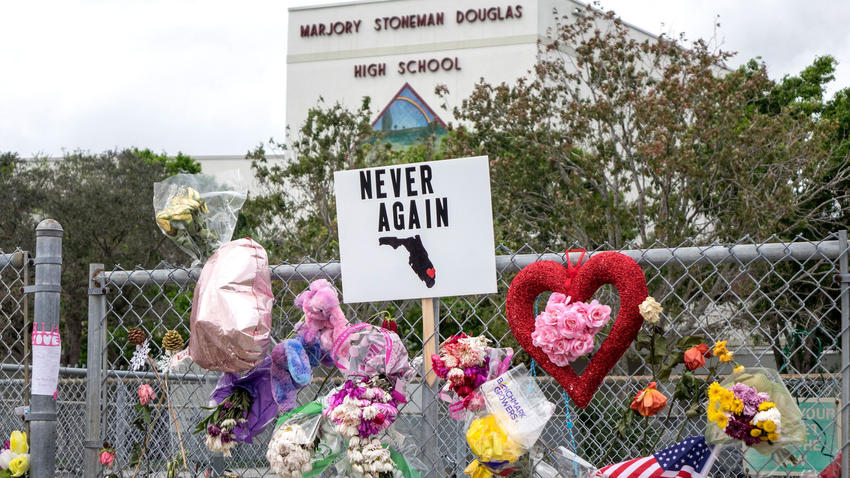
A makeshift memorial in front of the Marjory Stoneman Douglas High School in Parkland, Florida, on February 20, 2018. Image: Cristobal Herrera / EPA-EFE
In the wake of the Parkland, Florida school shooting that killed 17 people, President Trump and the National Rifle Association have suggested a proposal to arm teachers in order to protect their students against another tragedy.
While meeting with survivors at the White House on February 21, Trump floated the idea of arming teachers and school staff. “If you had a teacher who was adept with the firearm, they could end the attack very quickly,” he said, stating that schools could arm up to 20% of their teachers. Since his initial statement, Trump seemingly reversed his stance, and then reiterated support for it once again.
There has been significant pushback against the idea. Law enforcement groups and teacher organizations have expressed opposition, and it has been singled out as a politically-motivated distraction on the part of the NRA.
We want to know what our members think about this issue. The more feedback we receive, the more we can advocate on behalf of educators nationwide.
CAA Statement on the 2019 White House Budget Proposal
posted by CAA — February 12, 2018
Earlier this afternoon, the White House released its 2019 Budget Proposal. The $4.4 trillion budget outlines deep cuts in domestic programs that fund education, arts, and humanities initiatives, while increasing military spending.
“By zeroing out the budgets for the NEH, NEA and similar agencies that support the arts, humanities and education, the President has shown again that he cares more about tax cuts for the wealthy than supporting an American cultural heritage, funded though these agencies,” said Hunter O’Hanian, CAA’s executive director. “Thankfully, a bipartisan group of Congressional members, those with the real financial authority, have Americans interests at heart and they will reject the President’s draconian proposals.”
The entire budget proposal adds $984 billion to the federal deficit in the next year and in total adds $7 trillion to the deficit over the next 10 years.
Partial list of programs slated for elimination:
- NEA
- NEH
- IMLS
- CPB
- Corporation for Travel Promotion (Brand USA)
- Delta Regional Authority
- Denali Commission
- Northern Border Regional Commission
- Woodrow Wilson Center
- S. Interagency Council on Homelessness
- S. Trade and Development Agency
- Chemical Safety and Hazard Inspection Board
- Under SNAP: “Proposals are also included to eliminate funding for State performance bonuses and for SNAP nutrition education grants…”
- Economic Development Administration
- Contingency Fund
We call on our members and those who believe in the importance of the arts, humanities, and education to act now. The most effective way to make your voice heard is through your local representatives. Call. Email. Write letters.
Congress has this budget in their hands and now is the time to let them know you support the programs it seeks to eliminate.
Click here to access the CAA Arts and Humanities Advocacy Toolkit.
We look forward to discussing budget advocacy at our Annual Conference in Los Angeles, February 21-24.
CAA Statement on Deaccession of Artworks at La Salle University
posted by CAA — January 24, 2018
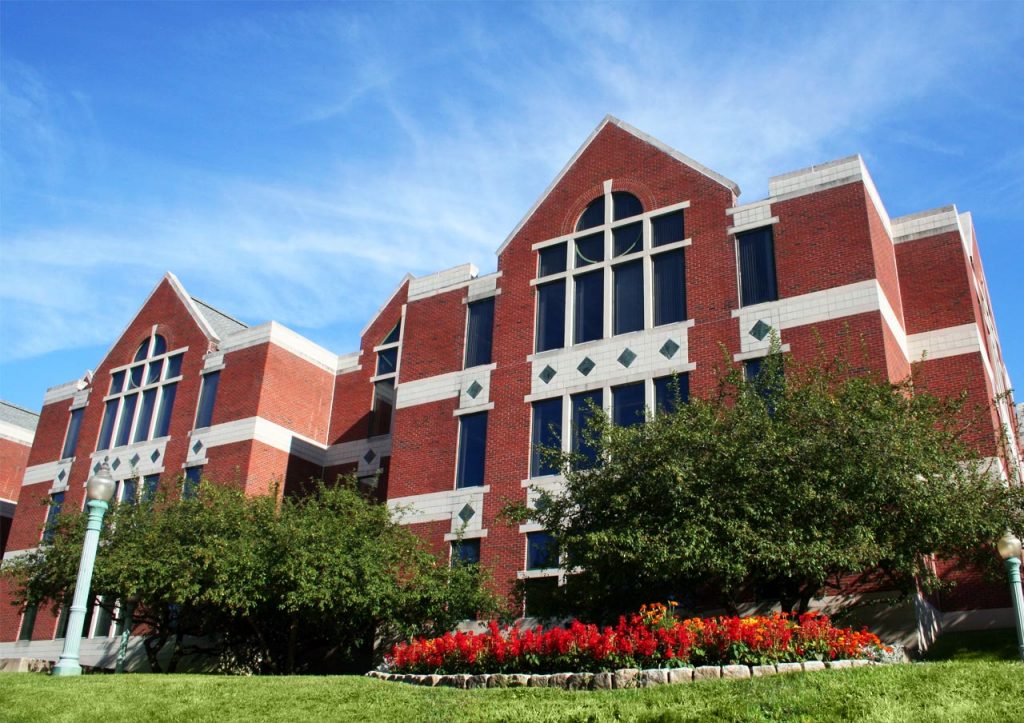
La Salle University. Image: Wikimedia Commons
CAA, the largest professional organization of visual artists and art historians, was disappointed to learn that La Salle University in Philadelphia plans to sell part of its art collection at the university’s museum. The university is currently planning to sell 46 works of art at a Christies’s auction estimated to bring in between $4.8 and $7.3 million. The university states that the proceeds from the sale will be “invested in the future of our university to help grow and to be financially sustainable. More importantly, we are really looking to enhance student experience and student outcome.” A university spokesperson further points out that the decision to deaccession the works was the result of months of careful consideration by its Board of Trustees, which examined all of the university’s assets and made a decision that select artworks from their art museum could be reallocated for funding the university’s new strategic five-year plan. Read the Artnet News story about the deaccession.
Similar to other cultural professional organizations, CAA has set guidelines for conditions under which items in museums collections are to be divested or deaccessioned. CAA Executive Director Hunter O’Hanian said, “We join our colleagues from the American Alliance of Museums and Association of Art Museum Directors in questioning this sale. CAA’s guidelines make it clear that art held by museums is not to be considered ‘an asset’ in the traditional sense. Museums should sell work from their collection only under very limited circumstances. And best practices dictate that the sale of the proceeds should only be used to acquire new works of art. We hope that the university Board of Trustees rethinks this position about selling the works that it holds in public trust.”
CAA Statement on Recent Remarks by President Trump
posted by CAA — January 16, 2018
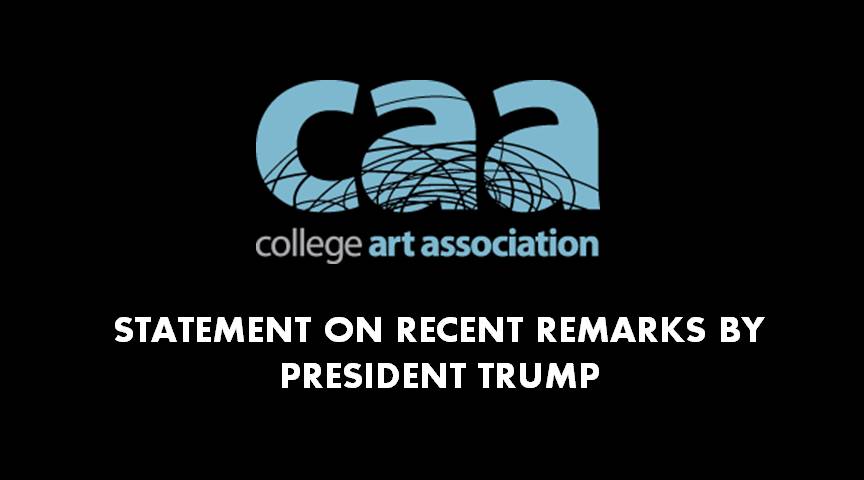
CAA, the largest professional association supporting art historians and visual artists, strongly supports the statement of the African Studies Association, denouncing statements made by President Donald J. Trump, which characterize African and Caribbean countries as “shithole countries.” CAA celebrates the important artists, scholars, curators, and art critics from these countries and their contributions to the arts both in the United States and internationally. In particular, CAA supports ASA’s statement: “It is shocking that such crude racist expressions of xenophobia are now part and parcel of executive office discourse. Not only do President Trump’s words disparage the people of an entire continent, on issues of immigration, they defy reality.”
“Whether it is funding for the arts and humanities, clean water and environmental regulations, fair hiring practices or gender and racial inclusion, CAA has a long history of taking positions and expressing values which support the field, as well as society,” said Executive Director Hunter O’Hanian. “The individual occupying the White House has embraced sexist, racist, and mendacious viewpoints over and over. He has shown concern only with enriching himself, sacrificing human decency and the good will of this country on the global stage.”
Read more: Statement by the ASA Board of Directors regarding President Trump’s Remarks
Action Needed! Protect Net Neutrality and the Open Internet
posted by CAA — December 13, 2017
Tomorrow, the Federal Communications Commission (FCC) is voting to repeal net neutrality—the idea that internet service providers should treat all online content equally without blocking or slowing down specific websites or allowing companies to pay for preferential treatment.
Net neutrality is important to intellectual freedom, freedom of speech, and access to information. If access to the internet becomes regulated by the ability to pay higher fees for certain types of content, many libraries, museums, non-profit organizations, and activist groups will be forced to choose between providing crucial services and providing full access to the internet.
Click here to protect net neutrality
Read more on the issue:
Net Neutrality Rollback Concerns Colleges (Inside Higher Ed)
Why Does Net Neutrality Matter to Libraries? (ALA American Library Association)
Net Neutrality: Why Artists and Activists Can’t Afford to Lose It (New York Times)
Advocacy Works
posted by CAA — November 20, 2017
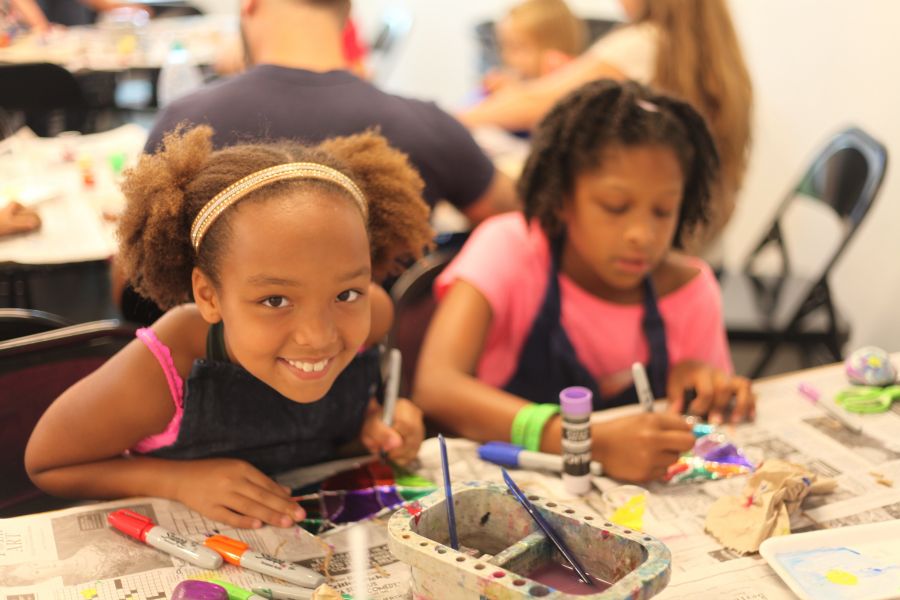
Supported by the NEH, Louisville’s Cultural Pass Program gives youth the chance to take art classes, in addition to providing them access to museums and other institutions. Image: Louisville-Jefferson County Metro Government
Last week, I attended a talk by Stephen Kidd, the executive director of the National Humanities Alliance. Steve reported that despite the White House’s attempt to zero out the National Endowment for the Humanities (NEH), the current House budget proposes level funding for the Title VI programs and the Institute of Museum and Library Services (IMLS). Their budget also envisions $145 million for the NEH, only a $5 million cut from last year.
Today, the Senate released a draft bill that provides $149.8 million in funding for the National Endowment for the Humanities for Fiscal Year 2018. Providing the same funding level as FY 2017 and $2 million above FY 2016, this bill is a forceful rejection of the administration’s call to eliminate the NEH.
Steve pointed out that these developments are a direct result of the grassroots advocacy by many artists and scholars, in particular, members of organizations such as CAA. All told, more than 200,000 messages were sent to members of Congress and they clearly had an impact.
If you get a moment, take a look at NEH for All: https://nehforall.org/. The Mellon-funded project highlights the impact that NEA-funded projects have across the nation.
Many thanks for all of your advocacy!
Hunter O’Hanian
Executive Director and Chief Executive
Action Needed! The House’s Bill on Tax Reform Punishes College Students
posted by CAA — November 17, 2017
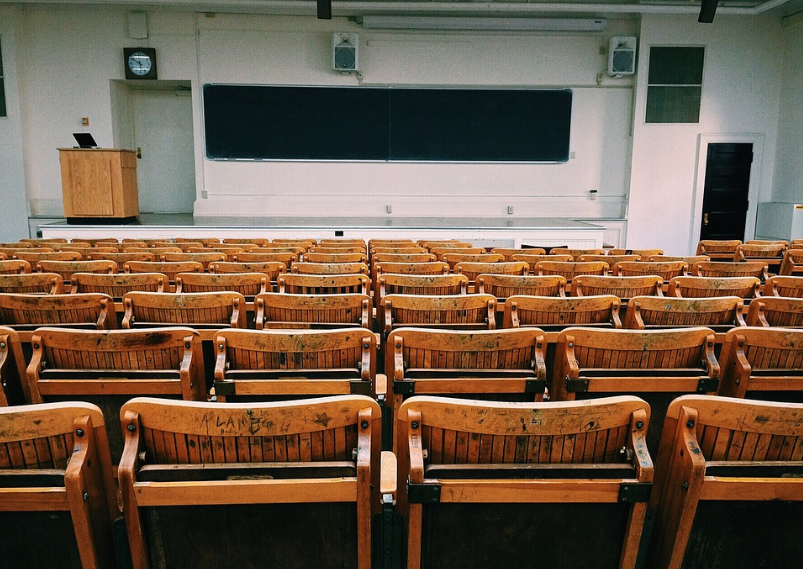
Yesterday, the House of Representatives passed a tax reform bill, titled the “Tax Cuts and Jobs Act,” that harms the lower and middle class, and puts harsh financial burdens on college students and recent graduates of college. Additionally, the House bill contains a provision that would end the deduction of student loan interest for tax payers. Nearly 12 million people claimed this deduction in 2015.
“This is a very cynical approach to higher education,” said CAA executive director Hunter O’Hanian. “To tax students on money they don’t earn and not allow them to deduct the amount of their student loans will have a chilling effect on higher education in America. These are the future scholars of this country. They are the ones who will preserve our cultural heritage as a nation. It is absurd to imagine that the US House of Representatives seeks to dumb-down future generations in this way. Everyone needs to contact their representatives in the House and Senate and strongly advocate that that this measure never becomes law.”
Under the House version of the bill, graduate students and doctoral candidates would be taxed on the waivers their schools provide them in return for working on campus as part of their professional development in their fields. The New York Times published a piece yesterday by Erin Rousseau, a graduate student at M.I.T., who receives nearly $50,000 in waivers each year. These waivers make school affordable for students, a financial support lifeline to those who otherwise would not be able to pursue graduate educations. The new House tax bill would increase Erin’s taxable income to an imaginary $80,000 a year, pushing her tax burden up by $10,000 a year.
With Congress aiming to pass this bill just as quickly as the House did, it is urgent to speak out now.
Click here to urge Congress to oppose this provision
Read more on the issue:
The House just passed its big tax bill. Here’s what is in it. (The Washington Post)
The House Just Voted to Bankrupt Graduate Students (New York Times)
The Republican Tax Plan Could Financially Devastate Graduate Students (The Verge)
A Call for Dialogue and Discussion | Embracing and Supporting Diverse Voices: Writing About and Making Art in the 2010s
posted by CAA — November 17, 2017

In June 2017, Scaffold, a sculpture by the artist Sam Durant, ignited protests among Dakota Sioux activists in Minneapolis where it was being installed at the Walker Art Center. After meeting with tribal elders, Durant and the Walker announced that the piece would be dismantled and burned in a Dakota ceremony. Announced recently, the Walker’s executive director Olga Viso will be stepping down at the end of 2017. Photo: Minneapolis Star Tribune/Zuma Press
As artists, designers, scholars, and other arts professionals, CAA members encompass an enormous range of voices and perspectives. Each of us has found an outlet for our intellectual and creative energies in a passionate commitment to a particular subfield or mode of cultural production.
We would like to open up a conversation about the relation between these two things: our diverse individual and collective positionalities and the subjects and questions we address in scholarly and artistic practices.
We find ourselves at a moment in which the individual and collective stakes of writers, artists, and curators are central to conversations, debates, and judgments about scholarly expertise and responsibility.
We are spurred in part by our observation that for some in the CAA community, these polarizations are having a chilling and possibly stunting effect on the research and creative directions one might choose to engage. The ways this ripples out into the field in the years to come can be imagined, but has yet to be realized in full.
CAA is committed to the open exchange of ideas and to nurturing and supporting scholars and artists in all fields, regardless of their individual ethnic, gendered, sexual, class-based, religious, or regional and national identification. We also acknowledge the deep asymmetries within societies in North America and around the world, and seek to work actively and incisively to challenge the hierarchies that still characterize our disciplines, our scholarly practices, and our lives as artists.
- What active and activist strategies and interventions might we pursue in the current polarized climate?
- Are there limits to what topics scholars and artists should address given their specific positionalities?
- Are there best practices to guide individuals in navigating these difficult waters with grace and attentiveness?
- How can CAA support scholars and artists whose work might come under attack because their positionality differs from the parameters of their subject matter?
We invite your thoughts, input, experiences, and wisdom: we are initiating this conversation so we can think or rethink our practices with the benefit of as much input as possible.



